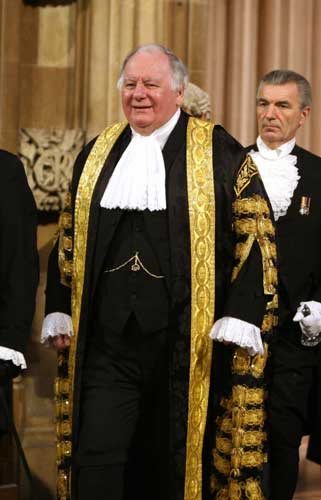Bill to allow Commons searches with no warrant
Pressure grows on Speaker as new proposal undermines promise to MPs

Your support helps us to tell the story
From reproductive rights to climate change to Big Tech, The Independent is on the ground when the story is developing. Whether it's investigating the financials of Elon Musk's pro-Trump PAC or producing our latest documentary, 'The A Word', which shines a light on the American women fighting for reproductive rights, we know how important it is to parse out the facts from the messaging.
At such a critical moment in US history, we need reporters on the ground. Your donation allows us to keep sending journalists to speak to both sides of the story.
The Independent is trusted by Americans across the entire political spectrum. And unlike many other quality news outlets, we choose not to lock Americans out of our reporting and analysis with paywalls. We believe quality journalism should be available to everyone, paid for by those who can afford it.
Your support makes all the difference.The vow by Commons Speaker Michael Martin to prevent "unauthorised" raids on MPs' offices in the wake of the Damian Green affair was seriously undermined last night as it emerged that the Government is preparing new laws to allow investigators to mount parliamentary searches without a warrant.
Pressure on Mr Martin to resign grew yesterday after a Labour MP publicly called on him to quit. Bob Marshall-Andrews became the first Labour MP to admit he had lost confidence in the Mr Martin over what he called a "deplorable breach of his duties" during the Green affair.
The Medway MP said: "He knew what was happening and he should have taken action to stop it. In those circumstances, the confidence of the House goes and without the confidence of the House he cannot do his job."
Defending his position, Mr Martin last week pledged that no one would be allowed to search any parliamentary office until they had produced a warrant and obtained his personal permission. However, legislation included in the Queen's Speech on the same day Mr Martin made his promise will make it simpler for officials to enter the House of Commons to carry out searches without the permission of parliamentary authorities.
The Political Parties and Elections Bill, aimed at tightening up the law on political donations, would extend the authority of Electoral Commission inspectors – or police on their behalf – to give them access to MPs' offices as part of any investigation of alleged breaches of funding regulations. The only authorisation required would be a "disclosure notice" issued by the commission itself.
The Bill also permits the watchdog's inspectors to enter the homes and offices of MPs and anyone who has donated to a political party, if there is a "reasonable suspicion" of a breach of the rules. A magistrate's warrant is required but no prior notice will be given and parliamentary authorities would not be consulted in advance.
In both cases, it would be a criminal offence not to assist the inspectors or to obstruct entry. The Commons Speaker would thus be breaking the law if he refused entry, with or without a warrant.
Opposition MPs also pointed out that the Regulation of Investigatory Powers Act 2000 gives police and other authorities the right to carry out undercover surveillance of MPs within the confines of Parliament.
The protection afforded to MPs became a critical issue after Mr Green, the Tory immigration spokesman, was arrested and held for nine hours while his homes and offices were searched by police investigating allegations of leaks from the Home Office.
In a statement to MPs at the height of the row last week, Mr Martin admitted that police had been allowed to enter Parliament without a warrant – although he claimed the Met should have explained that they needed one to carry out the search of Mr Green's office. He said that in future, warrants would always be required for searches of MPs' offices or access to papers and that his personal permission would also be necessary.
But the Conservatives claim his promise is an empty one. Francis Maude, shadow Cabinet Office minister, said: "At a time when there is so much public concern over heavy-handed use of state powers of entry, it is alarming that Labour ministers want to extend them. Giving unfettered rights to government inspectors to enter the offices of MPs further undermines parliamentary privilege and the confidentiality of constituency correspondence."
Meanwhile, the shadow Home Secretary, Dominic Grieve, said that the junior civil servant at the centre of the Home Office leaks inquiry should be sacked if he had "done the leaking".
Subscribe to Independent Premium to bookmark this article
Want to bookmark your favourite articles and stories to read or reference later? Start your Independent Premium subscription today.
Join our commenting forum
Join thought-provoking conversations, follow other Independent readers and see their replies
Comments